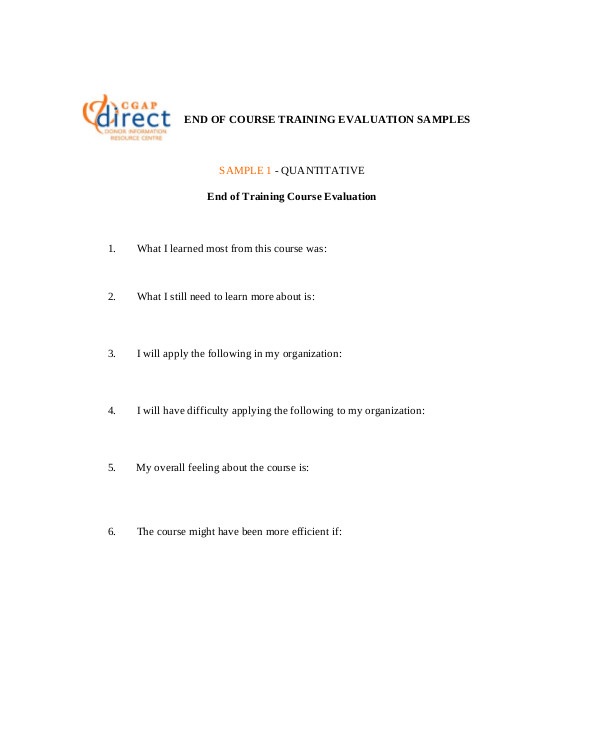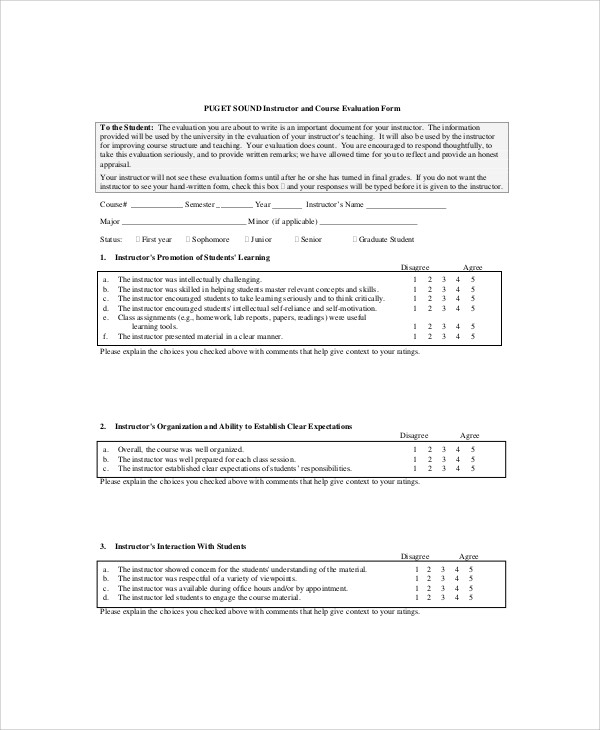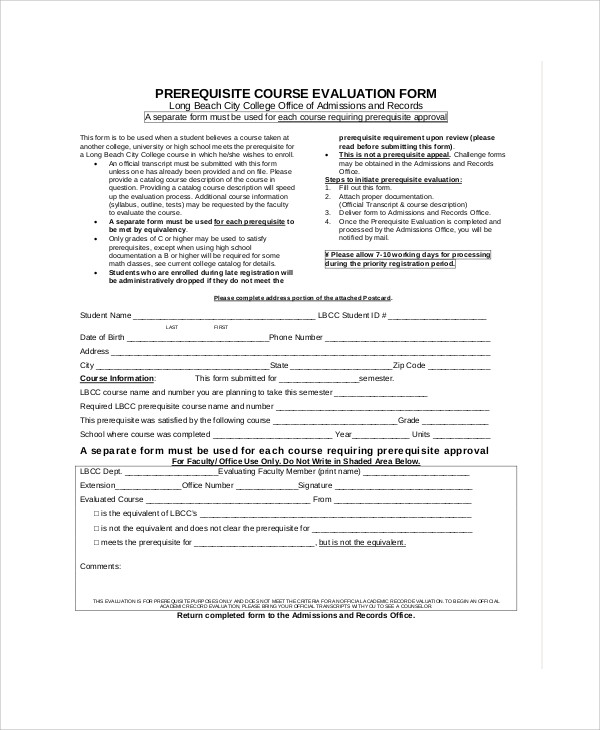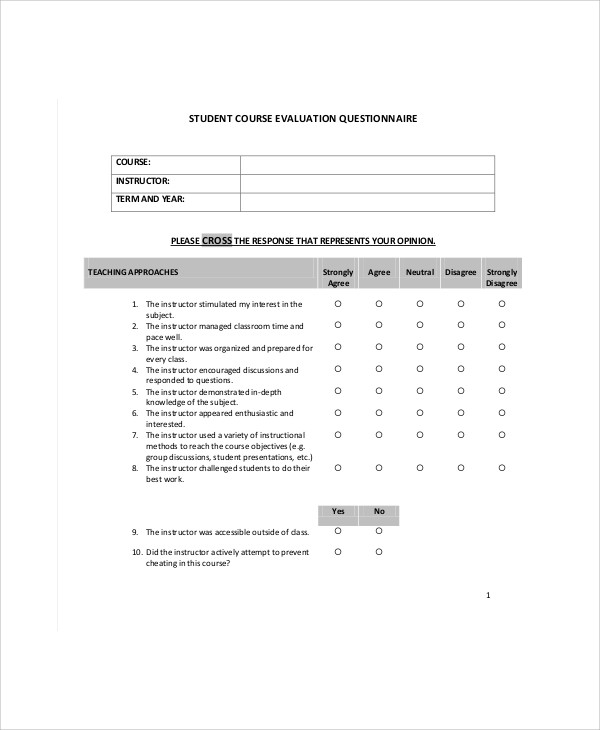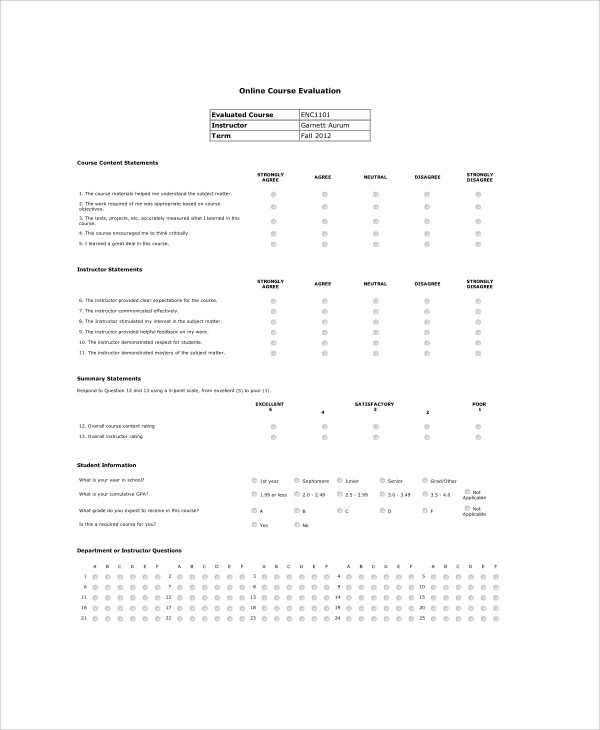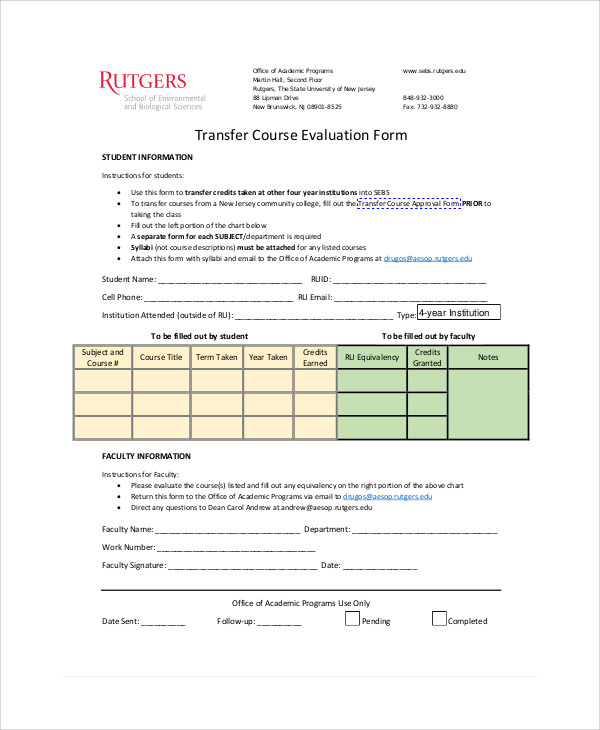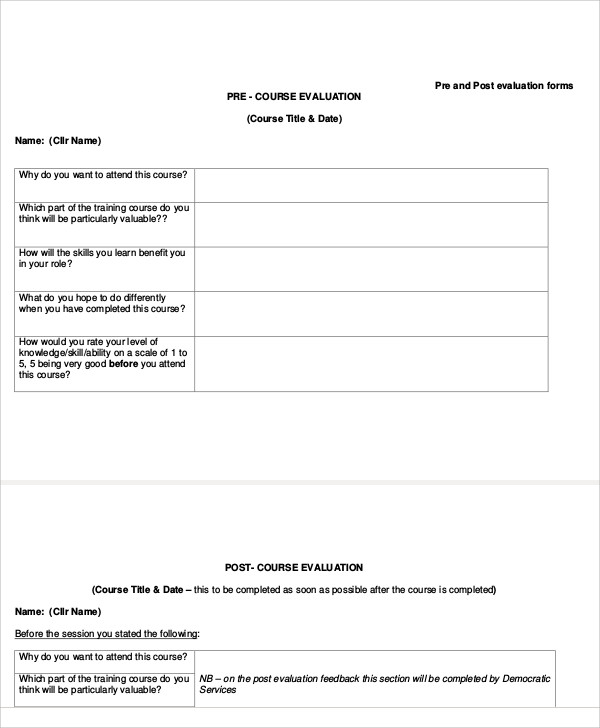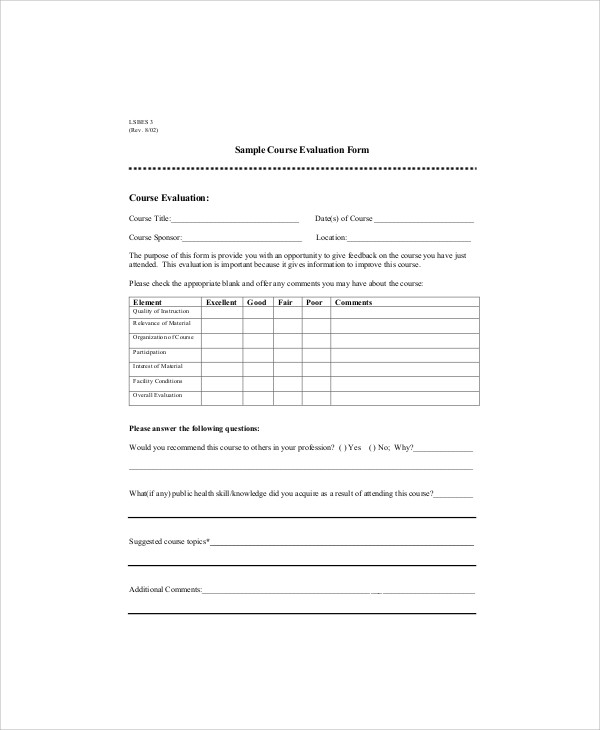When you’re running a school, the thing you worry about the most are the progress of your students, efficiency of your teacher, and effectiveness of your programs. Evaluation comes in handy to determine such.
When you’re running a school, the thing you worry about the most are the progress of your students, efficiency of your teacher, and effectiveness of your programs. Evaluation comes in handy to determine such.
Evaluation has always been a necessity in any organization, especially schools. Each school would have evaluation forms passed to their students at least once every semester. It is a good way to measure and keep track of their progress. There are factors that make an evaluation form important, which will be explained in this article. Before moving on, check our Sample Forms to familiarize yourself in creating one.
Training Course Evaluation Form
Course and Instructor Evaluation Form
Prerequisite Course Evaluation Form Sample
Student Course Evaluation Questionnaire Form
The Factors
As mentioned in this article, there are the factors that makes an evaluation important in a school, such as:
- More focused. The term evaluation helps you and everyone to focus on the job to achieve your favored outcome. In schools, when the principal or director announces that there will be an incoming evaluation, both students and teachers gets a boost of motivation to work hard to get a good evaluation. This helps them stay focused on working and learning.
- Teachers efficiency. The course evaluation form acts as a feedback for the teachers to determine their quality of instruction. It enables the teachers to improve their teaching lessons to be more effective for students’ benefit.
- Student’s progress. The course evaluation helps the teachers determine whether their students are able to cope up with the course program; it also helps them track their student’s progress.
- Administration use. The gathered information through evaluation and other input helps the administrators to come make summative decision and formative recommendation.
- Possibilities. Having an evaluation helps you come up with possible outcomes that can help you.
- Knowing why it works. Course evaluation just doesn’t help you distinguish what needs to be fixed, it also helps you distinguish what is helping your course progressing well. Determining the good parts also helps the teachers make their instruction more efficient and students learning better.
- Best decision. Generally, an evaluation helps everyone involved to determine what is the best decision when it comes to improvement. It allows you to determine what is the best course of action that needs to be done in the said course.
Check out our other evaluation forms like Workshop Evaluation Forms, which is helpful for classes made outside campus and Peer Evaluation Forms to rate your student’s learning skills and proficiency.
Online Course Evaluation Form
Transfer Course Evaluation Form
Course Evaluation Form Sample
Pre Course Evaluation Form in PDF
Course Evaluation Feedback Form
Here are some additional information on how having a course evaluation form helps you:
Course evaluation is implemented in either summative or informative.
- Summative – It evaluates the student progress and compares it against a standard or benchmark.
- Informative – It evaluates the instructor’s teaching efficiency. It allows your administrator to give accurate suggestion or recommendation on what a teacher needs to improve on.
This article provides samples in PDF format that you can use as reference material, free for download to help you make your own course evaluation form. See also Performance Evaluation Forms. It provides evaluation forms that could also be useful for assessing your students and teachers, and determining that your course program is working.
Related Posts
FREE 8+ Sample Leave Request Forms in MS Word | PDF
FREE 12+ Sample Deed of Gift Forms in PDF
FREE 9+ Sample Photography Consent Forms in MS Word | PDF
FREE 11+ Sample Parts Order Forms in MS Word | PDF
FREE 13+ Requisition Form Samples in PDF | MS Word
FREE 17+ ACH Form Samples in PDF
FREE 9+ Sample Vendor Evaluation Forms in MS Word | PDF
FREE 17+ W2 Form Samples in PDF
FREE 23+ Minor Form Samples in MS Word | PDF
FREE 9+ Sample Students Feedback Forms in PDF | MS Word
FREE 18+ Check Form Samples in MS Word | Google Docs | Pages | PDF
FREE 21+ Notification Form Samples in MS Word | Outlook | PDF
FREE 7+ Sample Audition Forms in PDF | MS Word
FREE 10+ School Clearance Form Samples & Templates in MS Word | PDF
FREE 19+ Study Form Samples in MS Word | PDF
